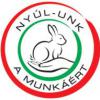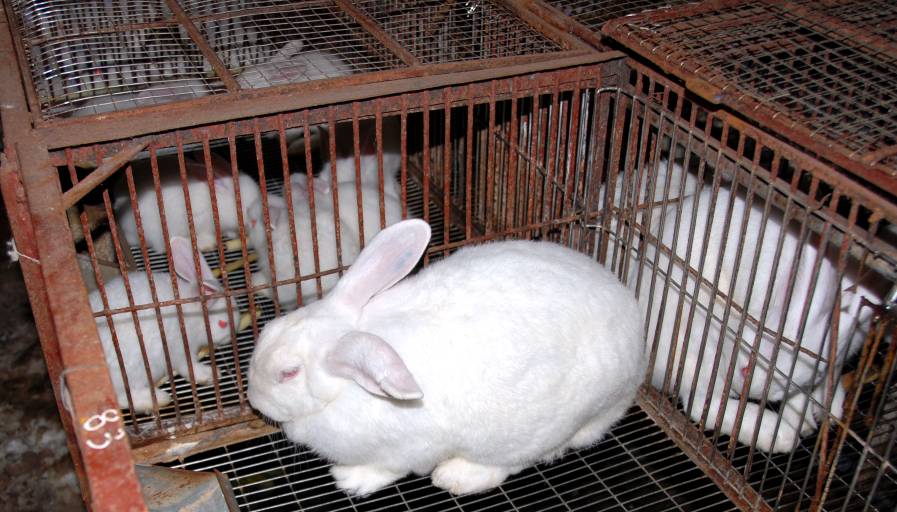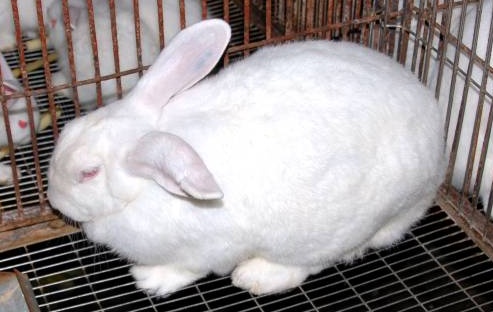
The Institute for Small Animal Research and Co-ordination Centre for Gene Conservation (KÁTKI) together with Tetrabbit Ltd. launched a rural development scheme in 2012 based on Hungarian rabbit breeds. It aims at establishing small region rabbit breeding centres that get families of the neighbourhood engaged in rabbit meat production in the frame of the Social rabbit breeding - keeping programme.
In 2012 we created two central nucleus breeding farms, one at the partner of KÁTKI and another at the partner of Tetrabbit Ltd. These farms provide small region partners and families with the basic breeding stock. Activities of rabbit breeding and husbandry are taught and supervised with the leadership of KÁTKI. Tetrabbit Ltd. co-ordinates the integration of production. The rabbit farms serve as gene conservation centres, as well, for the maintenance of nucleus stocks of the Hungarian Giant rabbit and the varieties of Gödöllő New Zealander and Californian rabbit breeds.



Based on the central nucleus farms we establish 3 new rabbit farms of 200 to 300 does annually in the frame of the scheme. Furthermore, we allocate 5 does and a buck to each of 80 to 100 families every year to establish miniature rabbitries. As a result of that it is expected that an integration of rabbit breeding embracing 9 to 10 small regions will develop by the end of the third year. This will ensure to make a living and have extra income for family farms for the sustenance of life in the countryside.
According to the plans, the central nucleus farms would receive a grant for a three year period, while the new co-ordinator farms in the small regions would get a grant for one year.
The grant is to be realized in the form of breeding animals, feed and doe cage technology and later the integration would be able to sustain itself and will be capable to create new integrations without further grants.
A secondary objective of the scheme is to set up co-operatives along the integrations of production, as well as to ensure a value creating process for the occupational and public employment schemes together with the municipalities of small regions.
According to the plans, the breeding farm of the two central nucleus rabbitries will be established in KÁTKI in Gödöllő and in Törökszentmiklós, respectively. We have already allocated rabbits to the families at Makkoshotyka and Monostorpályi and those belonging to the small region of the Börzsöny rabbit scheme. We provide mentors for the small region schemes in the field of animal feeding, animal health, etc. Supporters of the scheme are Purina, Cargill and Apha-Vet companies. The two organizations managing the scheme – KÁTKI and Tetrabbit Ltd. – together with their supporters provide a full and sustainable service providing web for the families getting engaged in the Social rabbit breeding - keeping programme.
By the end of the third year 6 regional integrations will have been created, which will integrate more than 1000 families. Regional integrations together will ensure the raw material for the Hungarian Rabbit Meat Scheme, which is to be introduced soon in the national and international markets alike under a specific trademark.
Enterprises getting engaged in the scheme are going to sustain their rabbitry according to a contract made for a 5 year period of time. They allocate animals twice a year during this time to their own region or to one assigned by the integrator Tetrabbit Ltd. This would result in the involvement of some 200 new families every year.
The rabbit farms would also function as regional centres of integration, breeding organization and feed distribution for the families. We want to achieve that the families involved would work in a regional social co-operative that constantly allocates rabbits to the families in need, while integrates those who perform well and provides a supplementary income for the members of the co-operative by selling surplus rabbits. Local municipal governments will be involved in the social co-operatives in each case, ensuring this way the legitimacy of the co-operatives and making the grant scheme run locally, in the given village.